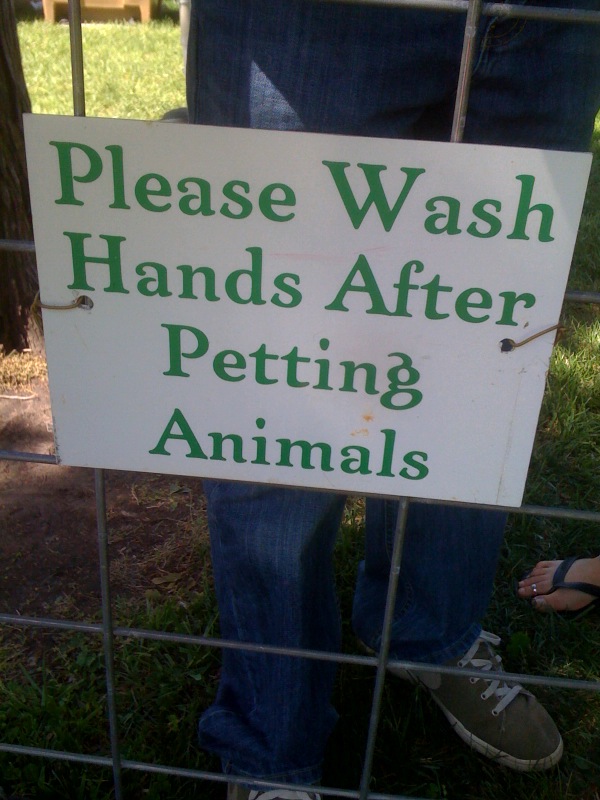Having a baby around the house has introduced me to a bunch of new life necessities like soothers, gripe water and wipes. I’m not a huge diaper-changing fan, but when it’s my turn I try to do everything in a quick, fluid-like step but it doesn’t always work out. The wipes help a lot.
I have a close friend back in Guelph who also uses wipes. And he doesn’t have a baby.
A couple of years ago he led a discussion at a party about the political-correctness of adults using baby wipes for the not-so-clean trips to the restroom. As the
Raleigh News and Observe
r puts it, wipes can provide consumers a "shower-fresh" feeling for their bottoms. Since the discussion, this friend reports that he has been buying wipes, stashing them in his desk and covertly grabbing one daily as he goes to have a dump.

According to the
News and Observer,
it turns out that flushing the wipes, even if they are the flushable ones is not a good idea for the sewer systems (at least in Raleigh).
Tissues and wipes of all stripes get balled up with hair and grease in the city’s pipes, creating clogs that send sewage cascading from manholes. The problem has gotten worse in recent years with the introduction of wipes designed to disappear down toilets, Wastewater Treatment Superintendent T.J. Lynch said.
"What we see a lot of times in the collection system are overflows caused by those types of materials that don’t degrade like they’re supposed to or they claim to," he said.
Lynch knows this from experience and because he asked the lab at the Neuse River Wastewater Treatment Plant to test several kinds of wipes to see how quickly they break down in water.
The test, performed in March, was simple: Put a wipe or a tissue in a beaker of water with a magnet on the bottom that rotates, creating a vortex not unlike a flushing toilet. The lab put nearly a dozen products through this process, letting them spin for an hour.
Toilet paper begins to break down into a milky mush almost immediately, lab supervisor Darrell Crews said. Other items survived more or less intact. Some, such as Kleenex and other facial tissues, are well-known to people in the sewage business.
"A lot of people flush Kleenex thinking that it’s just like toilet paper," Crews said. "But I can tell you, Kleenex doesn’t break down. You can stir it, beat on it, it’s just not going to break down."
It turns out that flushable wipes don’t break down either, Crews said.
I’m not sure that public data exists around the extent of use of the wipes, but I doubt my Guelph friend is the only one sneaking around with them. Having them disposed in waste baskets beside the toilet, or elsewhere in the restroom after a clean-up probably isn’t a great public health strategy. Flushable wipes, if they breakdown and don’t lead to sewage spewing from manholes, are a good idea.
 Feb. in Saskatoon).
Feb. in Saskatoon).
.jpg) water can. However, using such gels after hand washing with soap and water may further reduce the risk of picking up these infections.
water can. However, using such gels after hand washing with soap and water may further reduce the risk of picking up these infections. and swap saliva with a bunch of animals like cows, and llamas and alpacas, without supervision, and then go eat food or suck their fingers or whatever.
and swap saliva with a bunch of animals like cows, and llamas and alpacas, without supervision, and then go eat food or suck their fingers or whatever. I probably contracted a slight case of food poisoning while honeymooning in the Dominican Republic. So did my wife, and I spent my birthday, literally, in the bathroom and having to use baby wipes on sensitive and inflamed, uh, skin.
I probably contracted a slight case of food poisoning while honeymooning in the Dominican Republic. So did my wife, and I spent my birthday, literally, in the bathroom and having to use baby wipes on sensitive and inflamed, uh, skin. • if you want to be extremely careful, even though the hotel tap water is purified, always use bottled water if it will end up in your mouth such as washing your toothbrush, mouth guard (yes, I wear one myself due to grinding), or even rinsing the toothpaste from your mouth – if you use the tap water for any of these, and it happens to be tainted, you will get sick.
• if you want to be extremely careful, even though the hotel tap water is purified, always use bottled water if it will end up in your mouth such as washing your toothbrush, mouth guard (yes, I wear one myself due to grinding), or even rinsing the toothpaste from your mouth – if you use the tap water for any of these, and it happens to be tainted, you will get sick.
